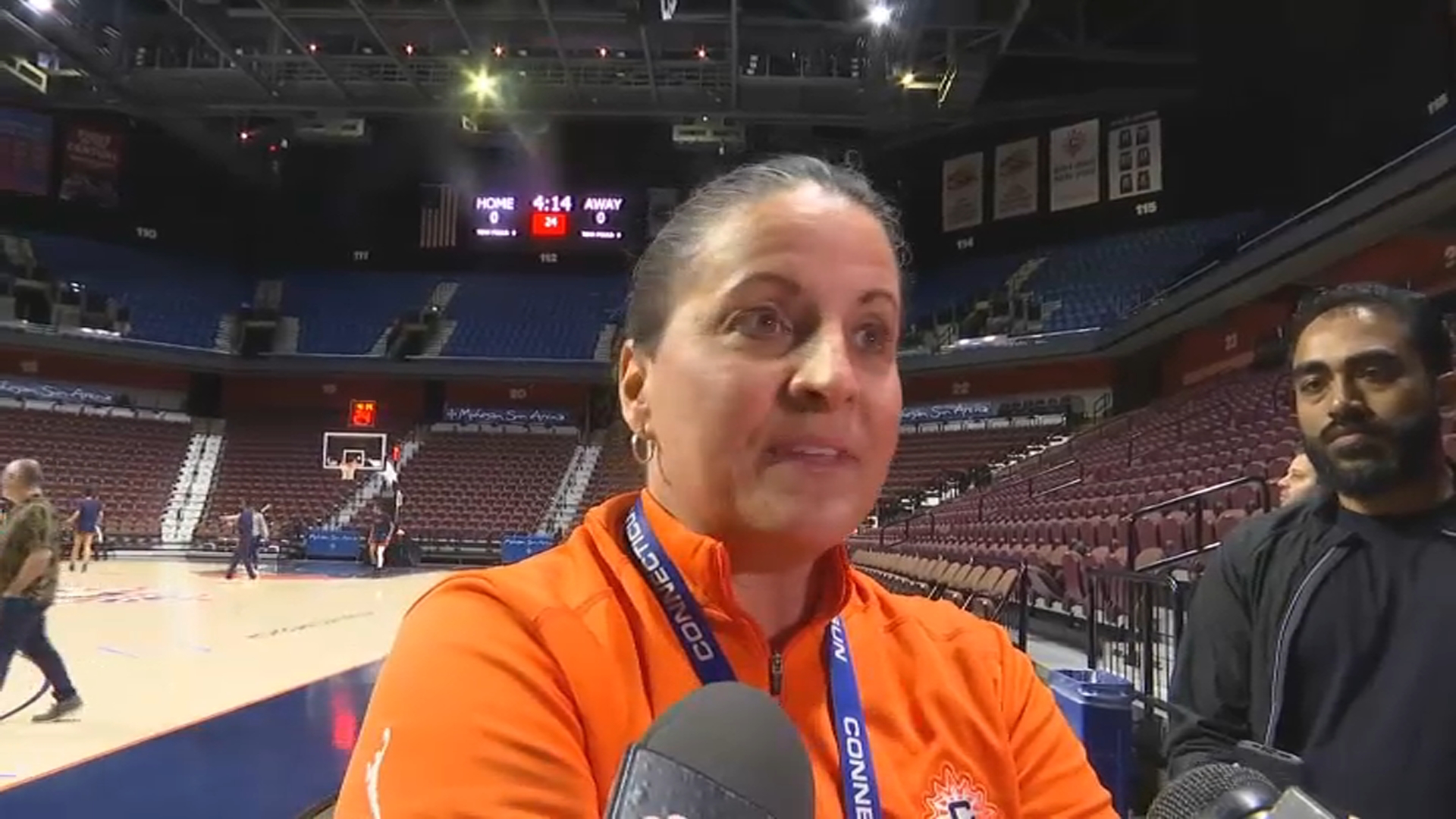A COVID-19 researcher explains how well people follow safety protocols can truly impact the spread of the disease.
In their more than 30 year history, the owners of The Carousel Shop in Old Lyme have never seen a summer like this. Plexiglas now separates workers from customers, distancing is required for anyone standing in line for ice cream, employees have to clean every hour and the inside of the shop is closed to customers.
"We kind of went overboard with our safety procedures," said Jennifer Lathrop, co-owner of The Carousel Shop. "We just want to be overly cautious."
The safety measures being taken in The Carousel Shop are the same practices that state and health leaders are pushing in order to slow the spread of novel coronavirus, COVID-19. As experts continue to promote masks and social distancing, a University of Connecticut research team wanted to be able to show people what the impact of the various safety measures actually looks like.
"We are trying to educate the public on how certain actions can impact the rate of infections and deaths," said Jeyaraj Vadiveloo, Director of UConn's Goldenson Center for Actuarial Research.
Vadiveloo's team spent the last two months developing an educational model for people to visualize how safety measures can affect the spread. They used a hypothetical community of 1,000 and created a formula that allows people to input different levels of social distancing to see how the infection and death rates change over a three-month period.
"Any ordinary person can run the model themselves and see graphically, visually," said Vadiveloo. "It is very powerful."
People are able to change three variables: the percentage of the population wearing masks, the percentage of the population practicing social distancing and how many people are initially affected. The person then is able to simulate a model of how deaths and infections would change on a daily basis over a 90-day period.
Local
For example, if 10% of people are wearing masks and distancing, the number of infected people increases from 100 on day one to 824 on day 30 and 510 on day 90.
However, if 75% of people are masking up and distancing, the number of infected people goes from 100 on day one to 79 on day 30 to two infected people on day 90.
"As scary as this virus is, it is well within our control to manage it and possibly even eliminate it if we do it correctly," said Vadiveloo.
Vadiveloo estimates that about 53,000 people have used the model since it was launched last week. He hopes people use the model as a learning tool to understand that following safety measures can have a significant impact on the virus, but ignoring them can have serious consequences.
"Behavior, which is within our control, can dramatically reduce the spread of infections and deaths," said Vadiveloo.



